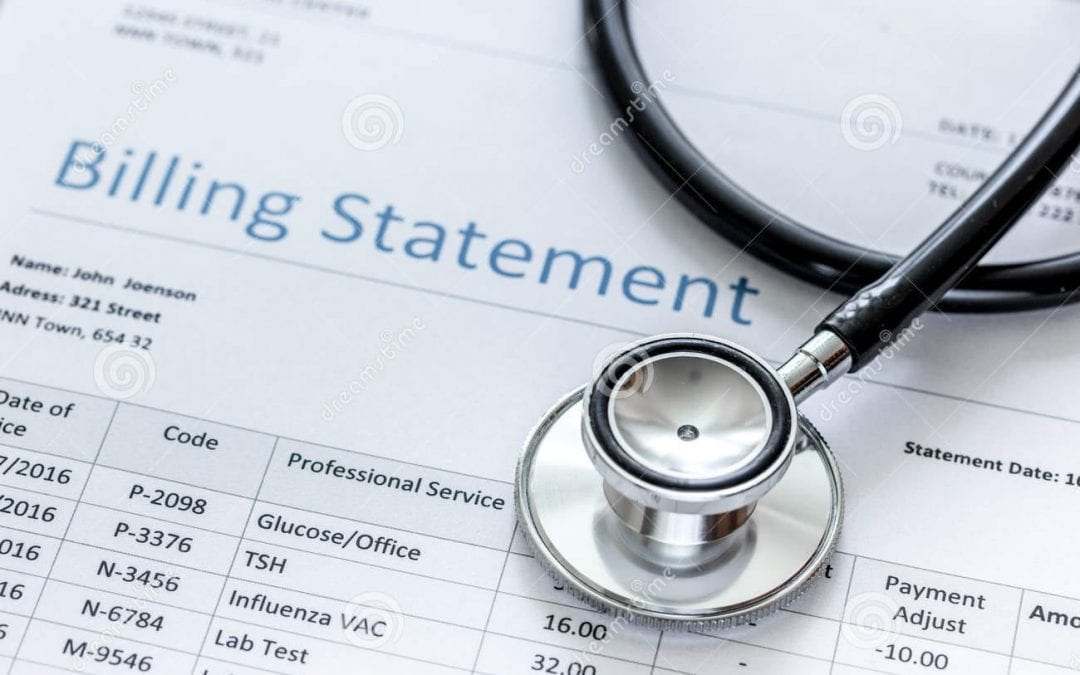by Himanshu Agrawal
Verbotics AI is building a fully automated medical coding and auditing system. This will bring down the time to encode a medical record from 5-20 minutes to ~200 milliseconds. We aim to not only help hospitals code quickly and more accurately but also help insurance companies to audit 100% of medical claims. Currently, it is prohibitively expensive for insurance companies to audit medical claims because “chart chasing” is entirely manual. Because of manual coding errors, the process of claims processing is slow, and errors are an unknown-unknown. With Verbotics AI, healthcare payers will be able to not only provide accurate and fast reimbursements but also lower the cost of operations. Verbotics AI is automating ICD-10 coding and auditing, which alone will save the healthcare industry 100+billion dollars in administrative expenses every year.
According to the Center for Medicare/Medicaid Services (CMS), in the fiscal year 2016, health insurance plans in the US paid out 2+ trillion dollars in medical claims. The US government mandates that all medical claims be filed, using the government approved ICD-10 codes in order to be reimbursed. Thus, it is fair to say that just like in 2016, in the year 2017, pretty much nobody in healthcare industry gets paid without ICD-10 coding. In fact, everyday in the healthcare industry:
1. Hospitals encode physician records into ICD-10 codes to file a medical claim; and
2. Insurance providers attempt to audit an ICD-10 codes based medical claims against physician documentation.
The ICD-10 medical coding system is a collection of highly specific codes, which describe in detail a variety of clinical health factors. For example, the code E08.3211 is applicable for patients with Diabetes mellitus due to underlying condition with mild nonproliferative diabetic retinopathy and macular edema in the right eye. Whilst being very specific, the ICD-10 also attempts to cover all possible disease/disease groups and procedures in practice today. There are about 150,000+ billable codes, and it is a significantly challenging to correctly code a medical record. It is such a big challenge that Medical Coding is an industry in itself, employing ~200,000 medical coders at an average wage of about 50,000 USD annually. The US Department of Labor estimates a 30% shortage of certified medical coders, and expects the shortage to grow to 50+% by 2020. In other words, demand growth exceeds supply growth.
In addition to lowering administrative costs and making possible large scale audits of medical claims, Verbotics AI aims to finally deliver on the promise of big data analytics in healthcare. Currently most of the real medical insight is locked in the physicians’ notes. By converting all legacy medical records into its full set of ICD-10 codes, hospital administrators and clinical researchers will be able to use existing data discovery tools to gather insights about disease progression, prescription patterns, care pathways and clinical outcomes, etc. And this is only the beginning.
As the American healthcare industry is gearing up to become more cost effective, Verbotics AI is solving a critical problem that is a pain point for hospitals, insurance companies, government and patients. A lof progress has been made, stay tuned for more details!
 Himanshu is a Global Entrepreneur in Residence at the VDC, and founder of Verbotics, an NLP/AI startup. He studied Computational Linguistics at University of Cambridge UK, and Computer Science at IIIT Hyderabad, India. Prior to starting Verbotics, he worked for 9+ years in the Fin-Tech and Health-Tech industries in India, UK, and the US. He has hands on experience in both research and development, and technology sales. Himanshu’s interests include human languages, AI, parallel computing, films, science trivia, geo-economics, folk music. General office hours: Twice a week; days vary depending on the week. Please email to schedule a meeting at h@verbotics.io.
Himanshu is a Global Entrepreneur in Residence at the VDC, and founder of Verbotics, an NLP/AI startup. He studied Computational Linguistics at University of Cambridge UK, and Computer Science at IIIT Hyderabad, India. Prior to starting Verbotics, he worked for 9+ years in the Fin-Tech and Health-Tech industries in India, UK, and the US. He has hands on experience in both research and development, and technology sales. Himanshu’s interests include human languages, AI, parallel computing, films, science trivia, geo-economics, folk music. General office hours: Twice a week; days vary depending on the week. Please email to schedule a meeting at h@verbotics.io.
